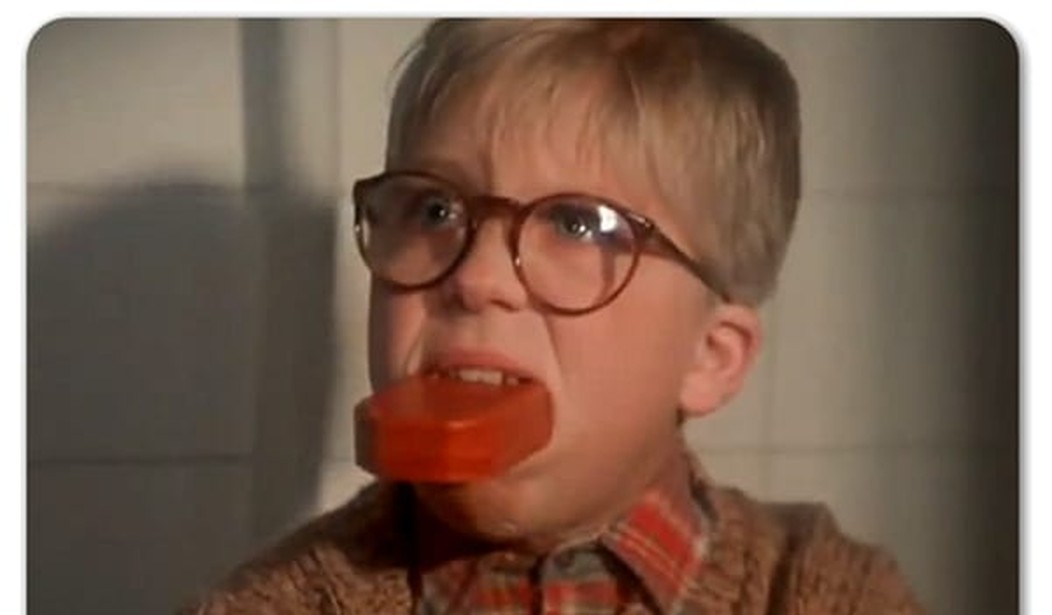When it comes to swearing, I’m a bit of a professional. I mean, I try. I really do (sometimes). I’m just saying, adulting is hard—even in front of your kids. You’re just not supposed to swear in front of the little so-and-sos, no matter how naughty or ridiculous they’ve been. Is swearing going to destroy the psyches and the sensibilities of my children? According to science, the answer may be no.
With the holidays approaching (my current excuse, anyway), I’ve really been letting it fly lately. Sometimes in frustration. Lots of times for comedic emphasis. Several times it’s not even me, it’s the other [EXPLETIVE DELETED] holes around my kids and me who are expressing themselves without a filter. Sometimes, it’s even my wife who can’t help but to let forth with a couple of what Mr. Spock called colorful metaphors: “Are you [COLORFUL METAPHOR] kidding me?” Or, “You’ve got to be [EXPLETIVE DELETED] kidding me!”
I’ve never been terribly successful at preventing my kids from parroting my potty mouth, to my eternal shame. When my son was two and a half we were in a grocery store utilizing a race car shopping cart. As we pulled into the checkout line, with a concentration of people observing, he yelled out what he thought was an appropriate exclamation for a driver in traffic: “BEEP BEEP JACKASS!!”
I still have no idea where he got that.
Then, Thanksgiving weekend happened. No, there were no political clashes with family members, and the food and the company were all stellar. My sixth-grade son and I attended the annual Oregon Ducks vs. Oregon State Beavers football game. Billed as the Civil War, it is the 6th oldest college football rivalry in the nation. The hatred is real. As a fan of the Ducks, I was in hostile territory on the Beavers campus. My son and I attended as representatives of the Boy Scouts—there were about 60 of us lined up along the end zone, presenting the Boy Scout salute during the National Anthem. Well, of course, before the game there was the tailgating. There may have been such ingredients as breakfast beer, an uncle telling stories from his delinquent youth, and a retired cop telling stories from HIS delinquent youth. All of which may or may not have been punctuated with innumerable colorful metaphors. (They probably were.)
Anyway, there we were, lining up before the National Anthem began. Being about 50 feet from the stands, we could easily hear the chant from the partisan crowd: [EXPLETIVE DELETED] THE DUCKS! [EXPLETIVE DELETED] THE DUCKS! (Think about it—it rhymed.) What’s a dutiful dad and Scout leader to do? I leaned over to my son, winked, and said, “This is a wholesome family environment, huh?” He laughed.
He often laughs when I drop a well-placed f-bomb, or tell him to quit being a [EXPLETIVE DELETED]. I know I’m not supposed to do it, and it’s just not the right thing to do.
Except, it turns out, it’s not that bad. And I have science to back it up.
That’s right, SCIENCE.
Next page: Find out what a swearing expert has to say about it
According to a professor of cognitive science at U.C. San Diego, swearing around your kids is no big deal. (As an aside, can you [EXPLETIVE DELETED]ing believe that someone gets PAID to study swearing??)
In a recent op-ed, said professor, Brian Bergen, wrote that exposure to slurs and insults is harmful to social development in children, as one might expect. As for dropping the random four letters, however, Bergen writes:
[There’s no] proof that exposure to ordinary profanity — four-letter words — causes any sort of direct harm: no increased aggression, stunted vocabulary, numbed emotions or anything else.
Of course, parents aren’t holding their tongues solely because they think hearing a bad word will turn their kid into a criminal. They also worry that the kid will turn around and use it. And yet the largest observational study — again we don’t have controlled experiments — found that childhood swearing is largely innocuous. Scientists documented children ages 1 to 12 naturally producing thousands of taboo utterances, and only rarely witnessed negative repercussions. On no occasion did swearing lead to physical violence. Instead, taboo words were used mostly for positive reasons, for instance humor, and mostly were not produced out of anger.
Bergen points out that societal taboos against swearing in public are deep-seated. “Some, like the American Academy of Pediatrics, argue that exposure to profanity is actually dangerous because it encourages aggression or will numb a child’s normal emotional reactions. As far as I know, scientists have never conducted a controlled experiment aimed at uncovering the consequences of swearing in front of children; you can’t ethically justify exposing 5-year-olds to heavy cussing if there’s even the slightest risk of harm.”
This guy actually wrote a book about it. Can you [EXPLETIVE DELETED]ing believe that? Bergen explains in his book that “swearing is a pre-lingual, primal skill, according to neuroscience.”
Again, it’s important to point out the difference between enthusiastic grammatical emphasis and actual slurs. It seems fairly well established that using slurs of any type builds up a demeaning attitude toward other people, and experiments prove it. Verbal abuse clearly impedes a child’s emotional development.
That’s not what we’re talking about here. We’re talking about speech patterns that use naughty words to add color to conversation. Yes, the words are naughty, and yes they’re adult themed. No, you wouldn’t want your kid popping off with an f-bomb at a family function.
But is it bad for your kids to hear the occasional (yeah, occasional, that’s the ticket …) slip? Science says no.
SCIENCE, [EXPLETIVE DELETED]ES!










Join the conversation as a VIP Member